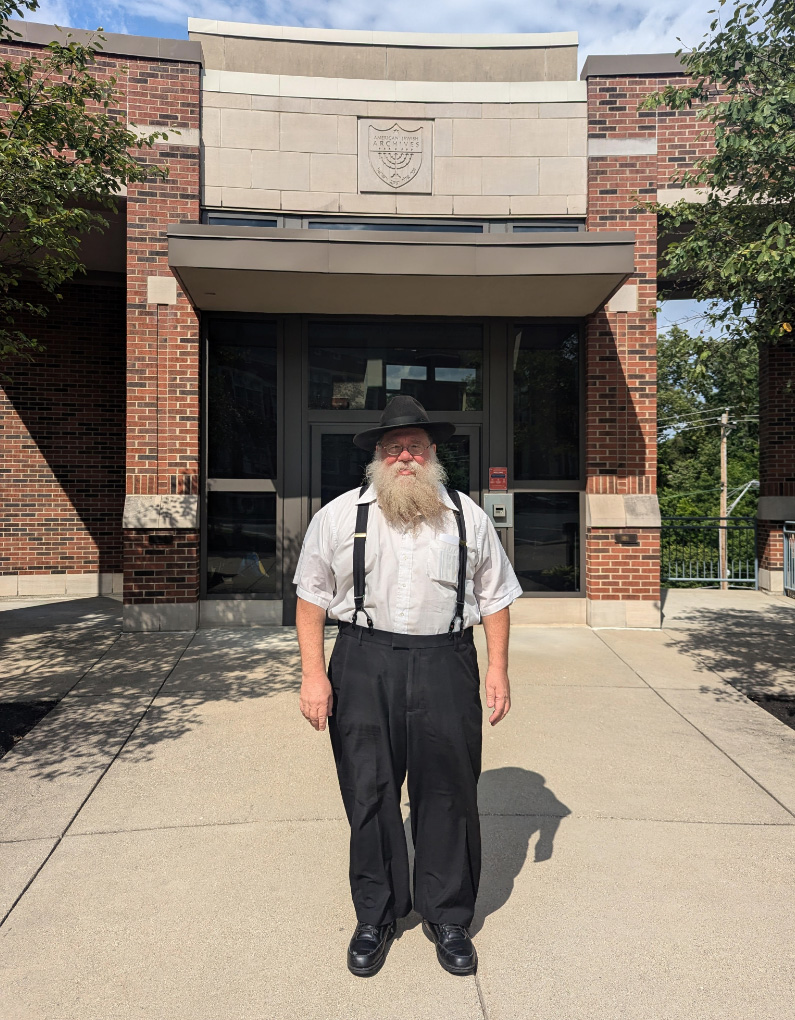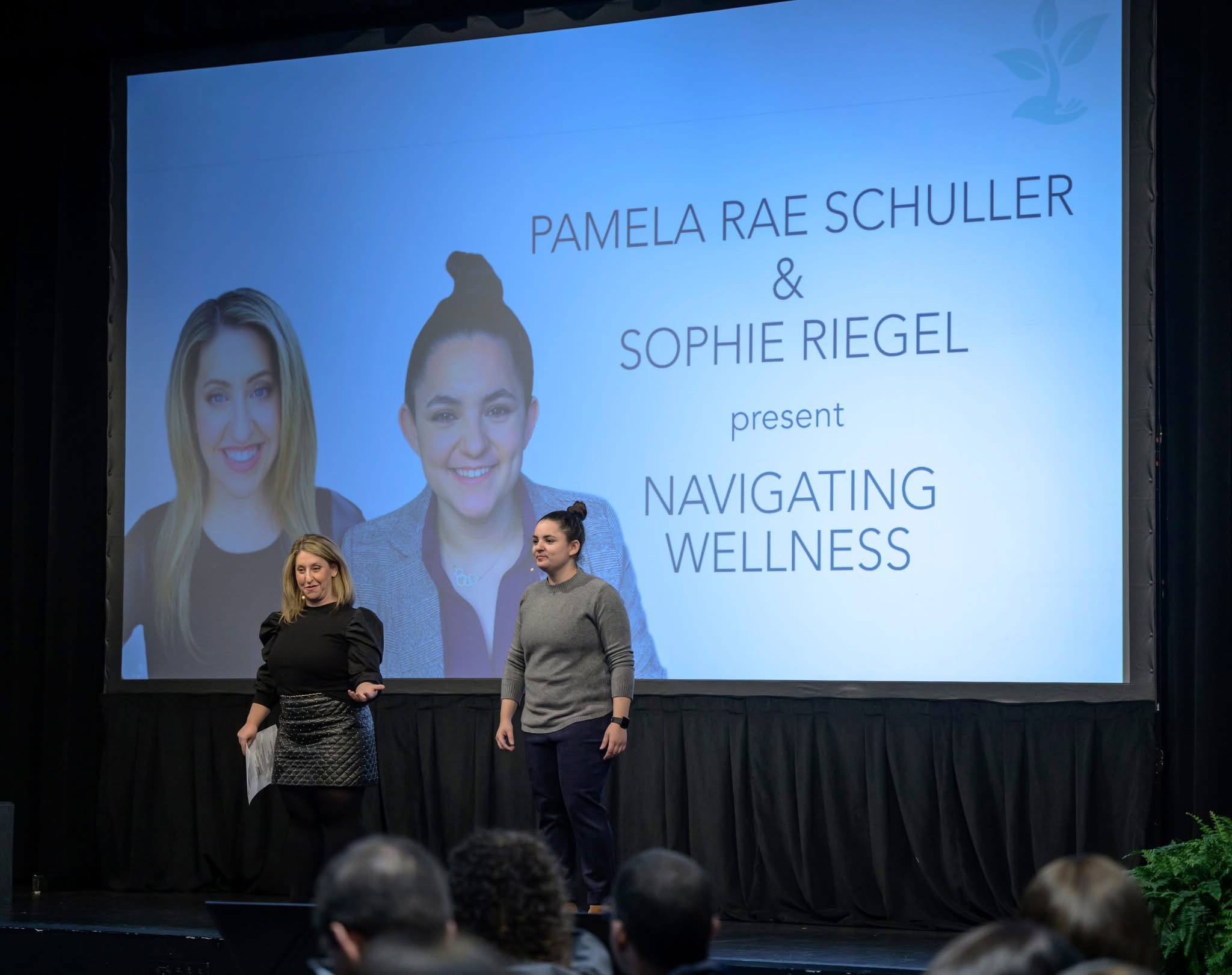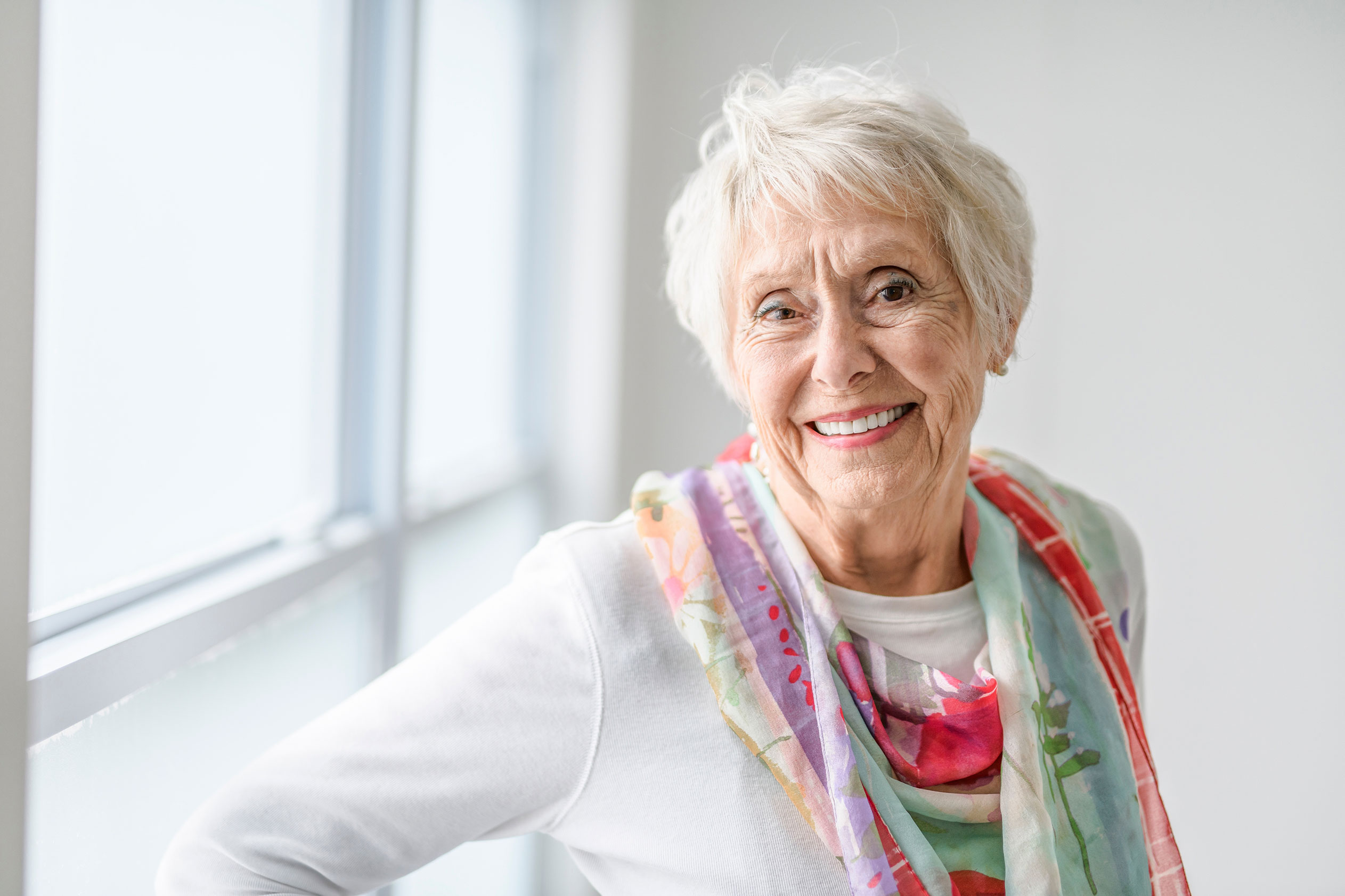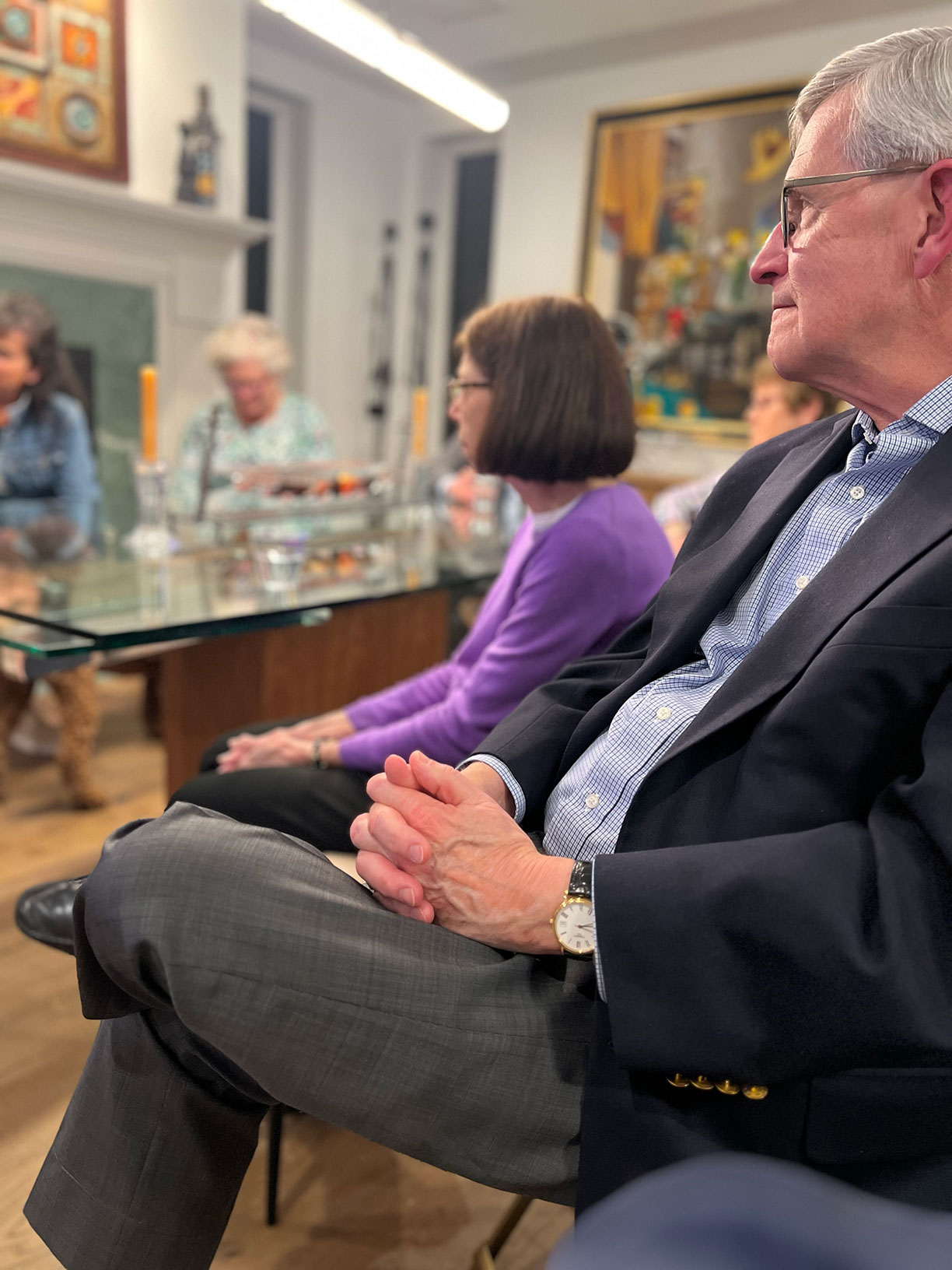By Melissa Hunter
Assistant Editor
For the past week, Rabbi Chaim Dalfin, who was recently named a Marcus Center fellow to the American Jewish Archives (AJA), visited Cincinnati, Ohio. The Marcus Center administers fifteen endowed fellowships, all funded by generous friends and supporters of the American Jewish Archives. Marcus Center fellows are “teachers, students, scholars, and practitioners who, both individually and as a group, come to the American Jewish Archives to study some aspect of the American Jewish past.” The program provides fellows with the opportunity to pursue their own research as well as interact and exchange ideas with research peers and the faculty and students of Hebrew Union College-Jewish Institute of Religion (HUC-JIR).
Rabbi Dalfin’s appointment is significant because it is the first time a Hassidic member of the Jewish community has served in this role.
Born in Brooklyn in 1961, Rabbi Dalfin was was raised in a Chabad home. The eldest of three boys and one girl, his early years were spent immersed in the teachings and traditions of Chabad. After marrying his wife in 1984, they moved to Marin County, California, where they successfully established a Chabad there.
By the mid-1990s, Dalfin was devoting his time to his writing and teaching. His interest in the Jewish student-led collegiate organization Yavneh: The National Jewish Religious Students Association led him to the work of Professor Benny Kraut. Kraut, a University of Cincinnati professor and director of their Judaic Studies department, wrote a novel on the subject matter, The Greening of American Orthodox Judaism, which was published by Hebrew Union College Press. Dalfin’s research led him to the Cincinnati campus of Hebrew Union College, and it was here that he began considering applying for the AJA fellowship.
Dalfin sees his acceptance as historic. “It is the first time a Hassid has served as a visiting scholar,” he said. “It’s been an opportunity to bring together Jewish people of all observances in the hub of the Reformed movement.” Dalfin believes in working to build relationships between Chabad and other Jewish communities. “We shouldn’t use terms of Reformed, Conservative, and Orthodox. We are all Jews.”
His work as a fellow involves further research into Yavneh, utilizing the same archives that Professor Kraut used in writing his book. “It was a groundbreaking movement on college campuses for Orthodox Jewish students.”
During his time in Cincinnati, Dalfin has spoken to Jewish students, including 50-60 high school students at the Chabad Yeshiva high school, and lectured on such subjects as reincarnation and mental health, an endeavor he finds inspiring. He also got to see the sites and visit with other key members of the Jewish community. “Everyone I’ve met is so positive and hopeful,” he said. Before returning home on Thursday, he will give a presentation on the findings of his research at the AJA, followed by a Q&A. He is hopeful that he will be able to return to the archives again for more research in the future. “It is a treasure of information, a goldmine,” he said.





